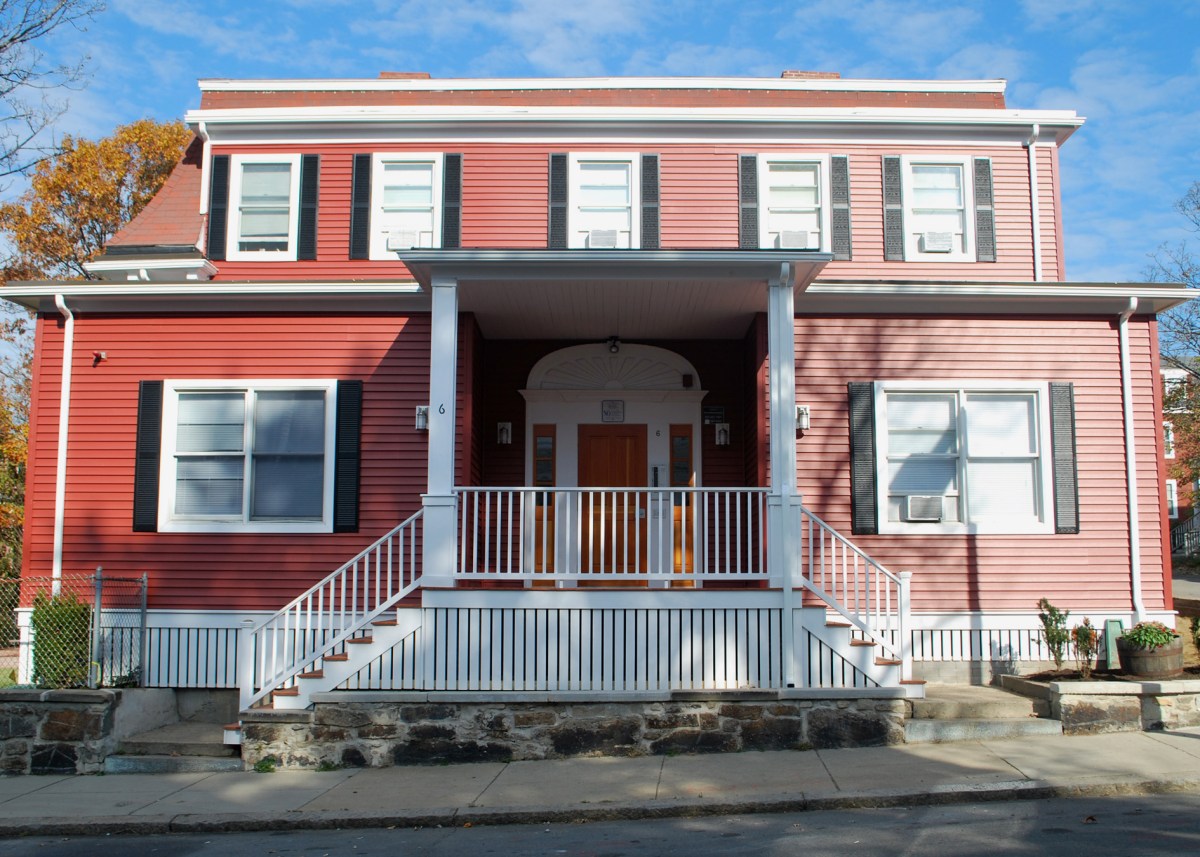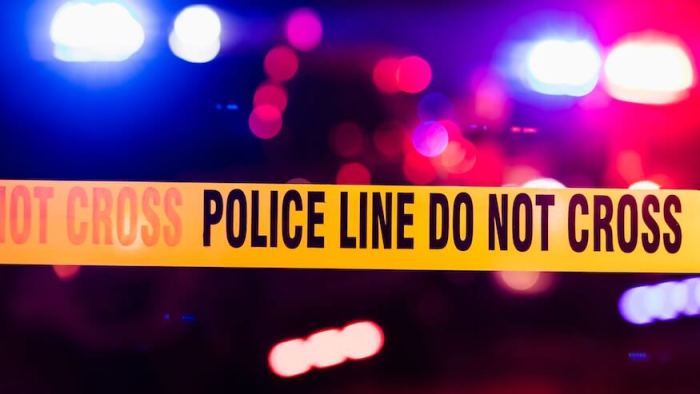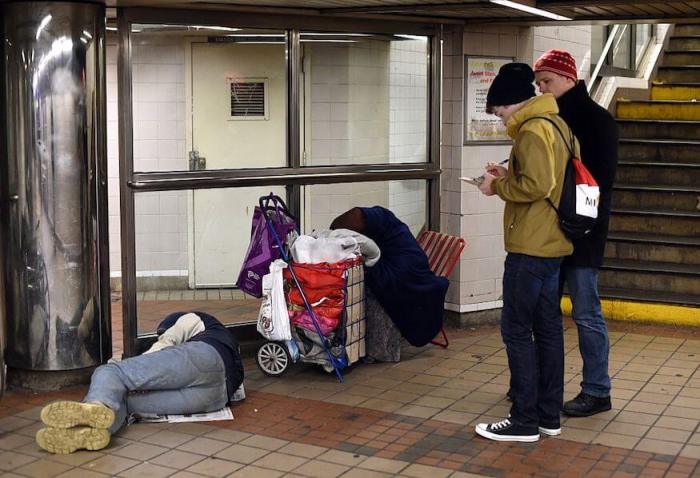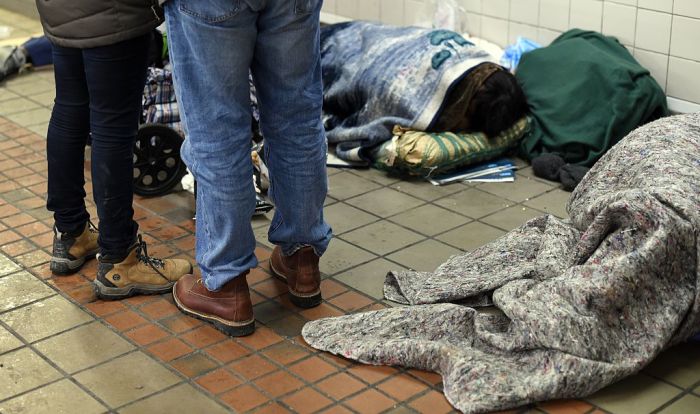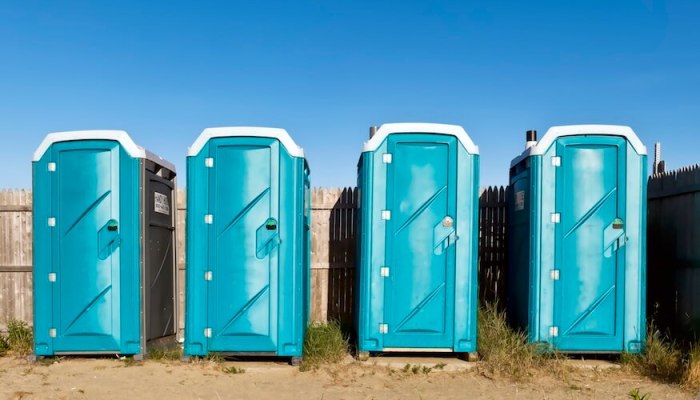In his effort to end homelessness, Mayor Marty Walsh has paid special attention to the issue of veteran homelessness — and for good reason. Across the country, veterans are overrepresented in the homeless population, with studies showing that they’re twice as likely as civilians to become homeless.
In 2016, Walsh announced that Boston ended chronic veteran homelessness, but that doesn’t mean there aren’t any more vets sleeping in shelters across the city.
Kathy Conley, director of Pine Street Inn veterans programs, was a part of that city effort. “Chronic,” she explained, means they’ve been on the street or in a shelter for at least 12 consecutive months or have had four episodes of homelessness in a three-year period.
“I think we did a really good job getting chronic veterans housed, and now we’re working on non-chronic,” she said. “It’s the same pool of people, they’ve just been living on the streets less.”
At Hartford Street, Pine Street Inn’s just-for-veterans transitional house in Dorchester, the wide array of veteran homelessness is clear. The youngest veteran Conley has worked with was 22, the oldest 84. She’s worked with vets from all branches of the armed forces and from different wars, including Vietnam, Iran, Afghanistan and even peacetime vets.
“We have to do some research and learn about what they experienced, where they came from, but they share with us also,” she said. “The beauty of the program being solely for veterans is they can relate to each other. They have a fellowship and support each other.”
That connection is key, and sometimes, Conley said, why vets aren’t always completely comfortable when they get housing and live on their own.
“There honestly is a sense of camaraderie on the streets… to get into housing can be somewhat isolating,” she said. “You go from being around a couple hundred people to all of a sudden looking at four walls.”
That’s why Pine Street does aftercare, as well, to maintain a connection with vets and continue to help with the issues that may have contributed to their homelessness, like mental health and substance abuse, PTSD, legal barriers to work or housing and, often, credit issues.
Veteran Homelessness: How does Boston compare?
To date, Boston has housed more than 850 homeless veterans. Nationally, the number of homeless veterans has dropped 5.4 percent over the past year, according to the U.S. Department of Housing and Urban Development.
But veteran homelessness has actually increased in Massachusetts. Though it’s declined more than 21 percent since 2013, it’s increased 15 percent from 2017 to 2018, according to HUD data out this month.
Conley thinks she knows why: “There’s no affordable housing here,” she said.
Boston has resources for homeless veterans, but as one of the most expensive real estate markets in the nation, it’s hard to vets to find an affordable one-bedroom apartment here, even with HUD veterans affairs vouchers.

Often, that means that after getting help in Boston, vets have to move outside of the city, like to Fall River, New Bedford or on the North shore. Moving away for a more stable housing situation can then break those connections veterans made in Boston, isolating them again.
But Pine Street is still there for them, Conley said. For Veterans Day, Pine Street is hosting multiple events to get homeless and housed veterans together, like special luncheons and a donated Italian dinner night.
Events extend throughout the week, and they build on the work the organization already does to acknowledge these veterans.
“Society sets aside one day a year for them, but we really try to do it every day,” said Conley. “They say, ‘Thanks so much for what you’re doing for us,’ and we say ‘You deserve it.’ It takes them back because they don’t hear it all the time.”

